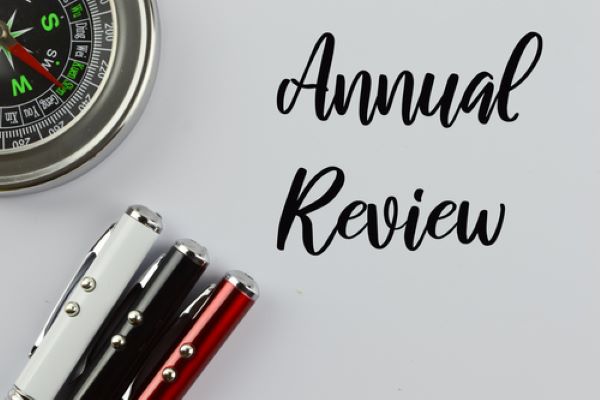 |
| By | March 15, 2023 |
Did you know that damage caused by floods is typically not covered under most standard homeowners insurance policies? In fact, if you reside in an area with a high risk of flooding, your mortgage lender will likely require you to purchase flood insurance through FEMA's National Flood Insurance Program (NFIP) and associated programs provided by your insurance professional. However, it's worth noting that over 20% of flood insurance claims come from areas that are not considered high-risk for flooding, which is why it's recommended that homeowners consider obtaining coverage regardless of their location.

In this article, we will provide an overview of what is and isn’t covered under a standard NFIP flood insurance policy. Additionally, we will examine how much coverage is truly needed to help cover the cost of rebuilding a home under current market conditions to help you determine whether you have sufficient flood coverage for your property.
Flooding Costs and Prevention
According to FEMA, most homeowners in low-to-moderate-risk areas pay less than $400 per year for flood insurance coverage. However, the average annual premium for flood insurance is approximately $700, with homeowners in high-risk areas paying significantly more.
FEMA’s NFIP is the primary source of residential flood insurance coverage in the United States. Although the federal government underwrites the insurance, it can be obtained through most insurance agents.
If you’re thinking about purchasing flood insurance, FEMA provides information on what is covered and what is not covered. It is important to note that there is a 30-day waiting period after purchasing the policy before coverage takes effect.
What Is Covered by Standard Flood Insurance?
Flood insurance policies generally offer coverage for two types of property: the structure of your home and its contents. This distinction is important because each type has its own deductible and limit. It is worth noting that flood insurance policies do not extend coverage to the land on which your home is situated.
Building coverage includes items such as electrical and plumbing systems, furnaces, water heaters, and kitchen appliances, including dishwashers and refrigerators. It also covers permanently installed fixtures like carpeting, cabinets, bookcases, and window blinds. The policy extends to foundation walls, anchorage systems, staircases, detached garages, fuel tanks, well water tanks, pumps, and solar energy equipment.
Contents coverage, on the other hand, covers personal belongings such as clothing, furniture, and electronic equipment. The policy also covers curtains, washers and dryers, portable and window air conditioners, microwave ovens, and carpets that are not included in the building coverage, such as those installed over wood floors. It also covers valuable items such as original artwork and furs up to $2,500.
What Flood Insurance Does Not Cover
The amount of coverage you need correlates with the cause of flooding. Specifically, flood insurance policies cover losses that result directly from flooding. This is defined as an overflow of water onto land that is usually dry, which affects at least two acres of land or two properties. It’s important to note that damage caused by a sewer backup is covered only if it results directly from flooding. If the backup is not directly caused by flooding, the damage is not covered by flood insurance but may be covered by an endorsement to your homeowners policy
As per the NFIP, flood insurance does not cover damage caused by:
- Damage caused by moisture, mildew, or mold that could have been prevented by the property owner, or that is not directly related to the flood
- Damage caused by earth movement, even if it was caused by the flood
- Additional living expenses, such as temporary housing, while the building is being repaired or is uninhabitable
- Loss of use or access to the insured property
- Financial losses caused by business interruption
- Property and belongings that are located outside of an insured building, including trees, plants, wells, septic systems, walks, decks, patios, fences, seawalls, hot tubs, and swimming pools
- Currency, precious metals, and valuable papers, such as stock certificates
- Most self-propelled vehicles, such as cars, including their parts
Federal flood insurance coverage is limited to $250,000 per building and $100,000 for contents; however, you can obtain a policy with lower limits.
Deductibles for your dwelling and contents are separate. Policies covering nonresidential structures and their contents can have higher coverage limits.
Can Excess Flood Insurance Cover the Gap in Coverage?
One of the significant advantages of obtaining excess flood insurance is the enhanced coverage it offers in the event of a flood. With excess coverage, policyholders can receive up to $5 million to rebuild their homes or businesses after a flood. Moreover, this type of coverage provides up to $2 million (in most states) to replace individual contents that exceed the limits set by the NFIP.
In addition to the standard coverage limits, excess flood insurance also provides financial assistance for the policyholders’ living expenses to support them during the transition period.
If you are concerned about the risk of flooding and the expenses that may arise from rebuilding your home or business, then it may be worthwhile to consider obtaining excess flood insurance. However, the specific coverage limits and premiums for this type of policy will depend on various factors. We recommend speaking with an insurance agent to determine the best options for your needs.
The insurance pros at Cell Brokerage specialize in providing affordable and customized insurance options and superior service to our clients. We partner with a variety of insurance providers so you are presented with options that fit your needs (and budget). Contact us to get a quote by email or call (844) 440-4222 today.









